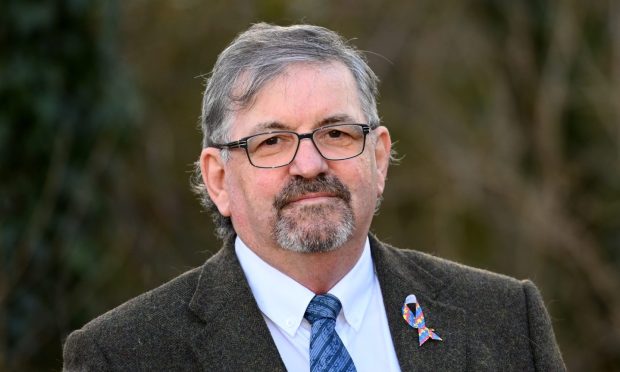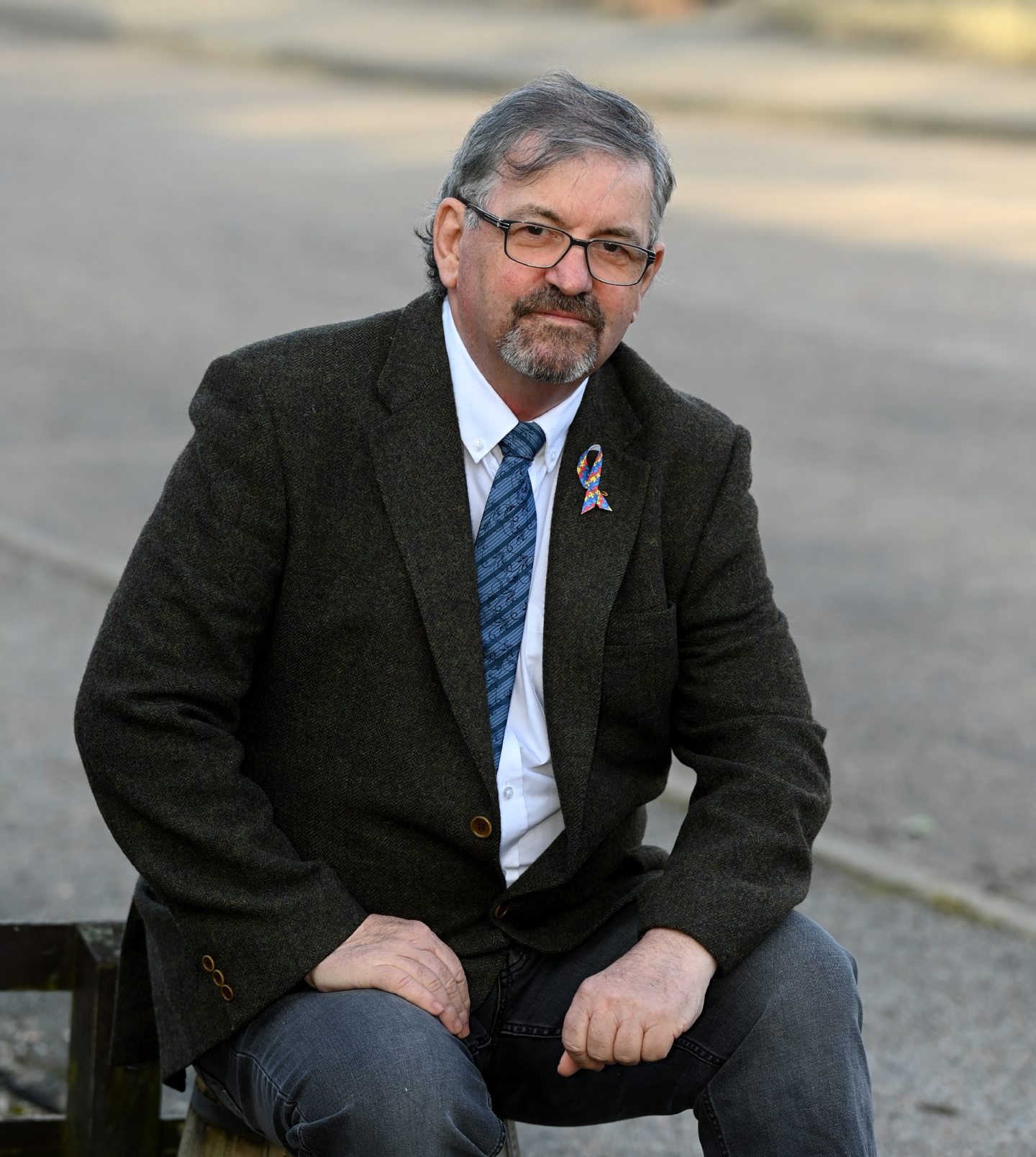An Aberdeen autism expert says the education system is “not fit for purpose” and is reaching “crisis point”.
Edward Fowler says the ‘presumption of mainstreaming’, which places children with additional support needs (ASN) in mainstream schools, is traumatising a generation of children.
And with the number of ASN children in schools growing rapidly, he is fearful of what the future will bring. For ASN pupils, non-ASN pupils, teachers, parents and society.
The latest Scottish Government statistics show that 37% of pupils now have an additional support need.
Mr Fowler has been working with autism for 14 years. Previously in business, his interest was piqued by a work colleague.
Her children were struggling at school and being excluded for extreme behaviour. “But they were lovely children at home, and she couldn’t understand what was happening.”
He began advocating for autistic children, and in 2012 he gained a postgraduate degree from Aberdeen University in autism and learning.
Mr Fowler has worked as a consultant for the National Autistic Society, and is also used as an expert witness in court cases.
Rising violence in Aberdeen schools: ‘Normal behaviour for an autistic child’
The GMB Scotland union said this month that pupil violence in Aberdeen schools is now an ‘emergency’. And the Educational Institute for Scotland (EIS) has also raised concerns over rising pupil violence in the city.
But Mr Fowler insists that ASN children being pushed into mainstream schools is a big part of the problem. And an issue that isn’t being given the attention it deserves.
“Autistic pupils’ behaviour can be extremely challenging,” he said.
“I’m trained to work in specialist schools, I’m expecting to be bitten or have my hair pulled. That’s normal behaviour for an autistic child.
“But teachers in mainstream schools are not taught to teach autistic children. They get something like an hour’s training.
[EIS told us that while they couldn’t state the amount of time devoted to ASN or autism specifically, teacher training includes “content to support students to build the professional knowledge, understanding, skills and abilities to meet the needs of learners with ASN.”]
“And PSAs (pupil support assistants) don’t get any training at all on how to support an autistic child or young person.
[GMB Scotland told us PSAs’ training “varies from council to council but is inadequate across the board.”]
“Kids are being put into a situation which is, well, destroying some children.
“Some children are traumatised, going through the system. The system is not fit for purpose.
“It’s getting to a crisis point. Teachers can’t cope. And all the while, the numbers of ASN pupils needing support is getting higher and higher.
“It’s crazy. It’s getting overwhelming.”
‘They aren’t violent. They’re in distress’
Reacting to statements made by teachers’ and PSA’s unions, Mr Fowler argues that autistic pupils’ behaviour should be seen for what it is. A cry for help.
“You hear teachers and PSAs say things like ‘they’re extremely violent’.
“They aren’t. It’s because they’re in distress and trying to communicate that they can’t cope.”
He said he sympathised with parents of non-ASN kids, and with struggling teachers.
“It affects the whole class, not just the children with autism,” he said.
“A lot of parents don’t want to complain, they don’t want to say ‘my child’s not getting an education because there’s a child with autism in their class’.
“But I’m saying to them: they should be complaining. Because it’s not working, for anyone.
“Their behaviour can be uncontrollable. I couldn’t imagine being a teacher and having to deal with this.”
The need for specialist schools for ASN pupils
Ultimately, Mr Fowler wants to see a return to specialist schools for ASN pupils.
“I think it has to get back to that.
“Baroness Warnock [the educationalist who chaired an inquiry into special education] spoke about pupils being in a mainstream environment and being traumatised for the rest of their lives.
“But they’re being forced into that environment, and that’s not good for anybody.
“That example of the lady I worked with, we got her son out of mainstream – after he’d been excluded 15 times – and into Camphill, and he was never excluded again. He had a lovely life.
“He was high-functioning, but he couldn’t cope in that environment.
“I can’t understand why the unions aren’t looking at that – because that’s the problem.”
‘In 15 years people will take the authorities to court’
Mr Fowler also warned that the impact of ASN kids being forced into mainstream schools is not just a growing problem, but a societal one.
“There was a report by Scottish Autism and the Scottish Government that basically said that if you don’t educate children with autism, you’re going to have to look after them for the rest of their life. And that’s going to cost a lot of money.
“What I’ve always said is that if they get the right education, the right support, into some sort of employment, they can be in the community and contribute.
“But the way it’s going just now…
“We’ve got kids who’ve never been in school at all. Others who are hardly in school. And the ones that are in school just aren’t coping.
“It’s a complicated thing, but if we don’t change something it’s just going to get worse and worse. It’s not going to slow down.”
He added: “I honestly think that in say 15, 20 years, there’s going to be a lot of cases of people taking the authorities to court because they were forced through a system that was abusive to them.”
Spending on additional support for learning at record high
A Scottish Government spokeswoman said spending on additional support for learning had reached a record high of £926million in 2022/23, which included increasing the number of pupil support staff.
She added: “The Scottish Government is clear that children and young people should learn in the environment which best suits their needs, whether that is in a mainstream or special school setting.
“There is a range of provision available including 107 local authority special schools across Scotland, in addition to specialist provision within mainstream schools.”




Conversation